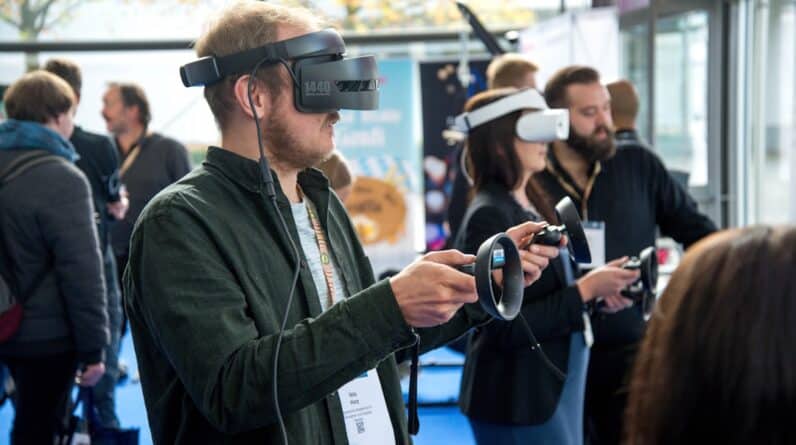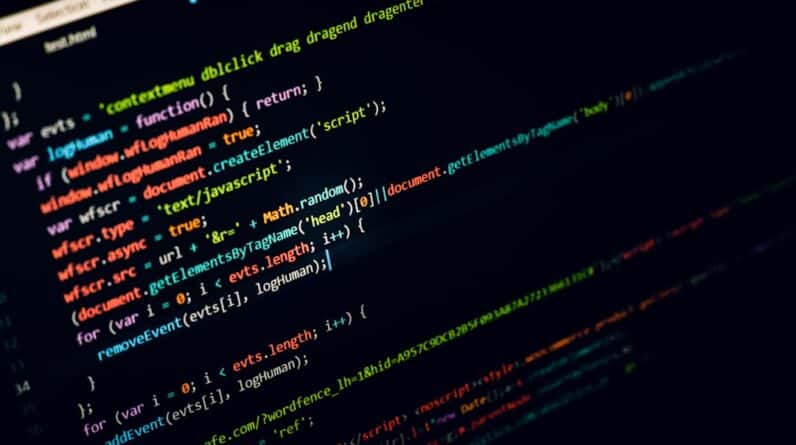As you delve into the intersection of artificial intelligence (AI) and sociology, you embark on a journey that explores how technology reshapes human behavior and societal norms. AI, a field that encompasses machine learning, natural language processing, and robotics, has become an integral part of modern life. Its rapid advancement has not only transformed industries but also influenced the very fabric of society.
Understanding this relationship is crucial for grasping how AI can both enhance and challenge social structures. Sociology, the study of social behavior, institutions, and structures, provides a framework for analyzing the implications of AI on human interactions. By examining the ways in which AI technologies are integrated into daily life, you can uncover insights into how they affect social dynamics, power relations, and community engagement.
This exploration is particularly relevant in an era where digital interactions often supersede face-to-face communication, prompting a reevaluation of traditional sociological concepts.
Key Takeaways
- AI is revolutionizing the way we understand and interact with society, impacting social structure and interactions.
- AI has the potential to redistribute power and resources within society, leading to significant changes in social dynamics.
- The ethical implications of AI in societal organization raise important questions about fairness, accountability, and transparency.
- AI has the potential to address social inequality by providing new tools and solutions to tackle longstanding societal issues.
- The evolution of social institutions is being shaped by AI, leading to new forms of organization and governance in the age of technology.
The Impact of AI on Social Structure
The Emergence of New Social Hierarchies
One of the most notable changes is the emergence of new social hierarchies based on access to technology and data. As AI systems become more prevalent, those who possess the skills to navigate these technologies gain a competitive edge, creating a divide between the tech-savvy and those who are left behind.
The Digital Divide and Its Consequences
This digital divide can exacerbate existing inequalities, as marginalized communities may lack the resources to engage with AI-driven platforms. Moreover, AI’s influence extends beyond individual capabilities; it also reshapes institutions and organizations. For instance, businesses increasingly rely on AI for decision-making processes, from hiring practices to customer service.
Redefining Social Roles and Responsibilities
This reliance can lead to a depersonalization of interactions, where algorithms dictate outcomes rather than human judgment. As you consider these changes, it becomes evident that AI is not merely a tool but a transformative force that redefines social roles and responsibilities.
The Role of AI in Shaping Social Interactions
AI plays a pivotal role in shaping how you interact with others in both personal and professional contexts. Social media platforms, powered by sophisticated algorithms, curate content based on your preferences and behaviors. This personalization can enhance your online experience by connecting you with like-minded individuals; however, it also risks creating echo chambers that limit exposure to diverse perspectives.
As you engage with these platforms, you may find that your social interactions are increasingly mediated by AI, influencing not only what you see but also how you communicate. In professional settings, AI tools facilitate collaboration and streamline workflows. Virtual assistants and chatbots can manage tasks that once required human intervention, allowing for more efficient communication.
However, this shift raises questions about the quality of interactions. While AI can enhance productivity, it may also lead to a reduction in meaningful connections among colleagues. As you navigate these changes, it is essential to reflect on how AI alters the nuances of human interaction and the potential consequences for social cohesion.
AI and the Redistribution of Power and Resources
The integration of AI into various sectors has profound implications for the redistribution of power and resources within society. As organizations adopt AI technologies, there is a tendency for power to concentrate among those who control these systems. Large tech companies often dominate the market, leveraging their resources to develop advanced AI solutions that smaller entities cannot compete with.
This concentration of power raises concerns about monopolistic practices and the potential for exploitation. Furthermore, the allocation of resources in an AI-driven world can lead to disparities in access to essential services. For example, healthcare systems utilizing AI for diagnostics may inadvertently prioritize patients based on data availability rather than individual needs.
As you consider these dynamics, it becomes clear that while AI has the potential to optimize resource distribution, it also poses challenges that require careful consideration to ensure equitable outcomes for all members of society.
The Ethical Implications of AI in Societal Organization
As you explore the ethical implications of AI in societal organization, it is crucial to recognize the moral dilemmas that arise from its deployment. One significant concern is the potential for bias in AI algorithms, which can perpetuate existing inequalities if not addressed. For instance, facial recognition technology has been criticized for its inaccuracies across different demographic groups, leading to unjust outcomes in law enforcement and surveillance.
This highlights the importance of ethical considerations in the design and implementation of AI systems. Moreover, the question of accountability looms large in discussions about AI ethics. When decisions are made by algorithms rather than humans, determining responsibility for those decisions becomes complex.
As you engage with these ethical dilemmas, it is essential to advocate for transparency and fairness in AI development. By fostering an environment where ethical considerations are prioritized, you can contribute to a more just society that harnesses the benefits of AI while mitigating its risks.
The Potential for AI to Address Social Inequality
Despite the challenges posed by AI, there is also significant potential for these technologies to address social inequality. For instance, AI-driven platforms can enhance access to education by providing personalized learning experiences tailored to individual needs. This democratization of knowledge can empower marginalized communities and bridge gaps in educational attainment.
As you consider these possibilities, it becomes evident that AI can serve as a catalyst for positive change when applied thoughtfully. Additionally, AI can play a role in improving access to essential services such as healthcare and financial resources. Telemedicine platforms powered by AI can reach underserved populations, offering medical advice and support remotely.
Similarly, financial technology solutions can provide individuals with access to credit and banking services that were previously out of reach. By leveraging AI in these ways, you can envision a future where technology acts as an equalizer rather than a divider.
AI and the Evolution of Social Institutions
The evolution of social institutions in response to AI advancements is another critical area of exploration. Traditional institutions such as education, healthcare, and governance are undergoing transformations as they integrate AI technologies into their frameworks. In education, for example, adaptive learning systems are reshaping curricula to meet diverse student needs, fostering a more inclusive environment.
As you observe these changes, it becomes clear that institutions must adapt to remain relevant in an increasingly digital world. In governance, AI has the potential to enhance decision-making processes by analyzing vast amounts of data to inform policy development. However, this reliance on data-driven approaches raises questions about representation and inclusivity in governance structures.
As you reflect on these developments, consider how social institutions must evolve not only to incorporate technology but also to ensure that they serve the interests of all citizens equitably.
The Future of Social Structure in the Age of AI
Looking ahead, the future of social structure in the age of AI presents both opportunities and challenges that require careful navigation. As technology continues to advance at an unprecedented pace, you may find yourself grappling with questions about identity, community, and belonging in an increasingly digital landscape. The potential for enhanced connectivity through AI-driven platforms exists alongside concerns about isolation and disconnection from traditional social networks.
Ultimately, your engagement with these issues will shape the trajectory of social structures as they evolve alongside technological advancements. By advocating for ethical practices in AI development and promoting inclusivity in its application, you can contribute to a future where technology serves as a tool for empowerment rather than division. As you reflect on your role in this evolving landscape, consider how your actions can influence the integration of AI into society in ways that foster connection and equity for all individuals.
Artificial Intelligence (AI) is revolutionizing various aspects of society, including sociology and social structure. As AI continues to advance, it will undoubtedly have a profound impact on how societies are organized and function. One related article that delves into this topic is How Artificial Intelligence Will Change the Future. This article explores the potential implications of AI on various industries and social structures, shedding light on the transformative power of this technology. As AI becomes more integrated into our daily lives, it will be fascinating to see how it shapes the future of social interactions and structures.
FAQs
What is the relationship between AI and sociology?
AI and sociology have a complex relationship, as AI technologies have the potential to significantly impact social structures and interactions. Sociologists are studying the effects of AI on society, including issues related to employment, privacy, and inequality.
How is AI expected to impact social structure in the future?
AI is expected to impact social structure in various ways, including changes in employment patterns, the distribution of wealth, and the nature of social interactions. It may also lead to the creation of new social hierarchies and power dynamics.
What are some potential ethical concerns related to AI and sociology?
Ethical concerns related to AI and sociology include issues of privacy, surveillance, bias in AI algorithms, and the potential for AI to exacerbate existing social inequalities. Sociologists are actively studying these concerns and advocating for ethical AI development.
What are some current research areas at the intersection of AI and sociology?
Current research areas at the intersection of AI and sociology include the impact of AI on employment, the use of AI in social services and governance, and the implications of AI for social identity and relationships. Researchers are also exploring the potential for AI to address social challenges such as poverty and inequality.
How can AI and sociology work together to address social challenges?
AI and sociology can work together to address social challenges by developing AI technologies that are designed with a deep understanding of social dynamics and human behavior. This includes ensuring that AI systems are developed and deployed in ways that are ethical, equitable, and aligned with societal values.






